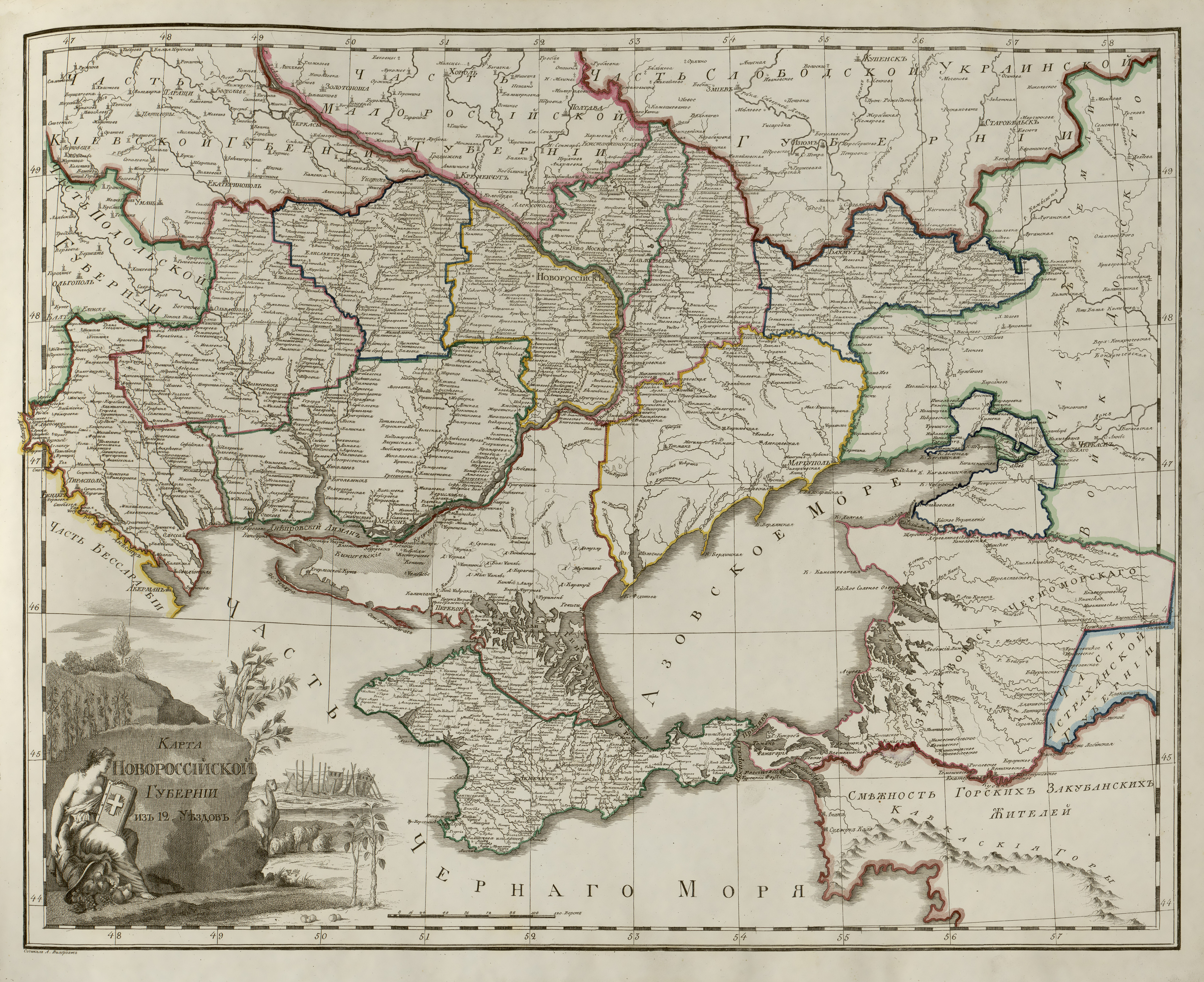Recently Ukraine celebrated its Independence Day.
I am not going into thin matters of how funny (and tragic at the same time) it sounds for me as an ex-Soviet citizen. I just wuold like to draw your attention to one of the tweets with which Ukrainian president Petro Poroshenko celebrated the day.

The matter is that the word Novorossiya (literally, New Russia) officially appeared in 1764, when Russian empress Catherine the Great established the Novorossiya governorate on the lands conquered during Russo-Turks wars.
You are free to look at the old map of 1800 and compare the Novorossiya Governorate with modern Ukraine.
The word "Ukraine" appeared a bit earlier, I should admit, in the mid-17th century, but it was neither ethnicity nor nation. It was just a colloquial term for a certain territory, called "Camporum Deserotum vulgo Ukraina" on the map created by Guillaume le Vasseur de Beauplan in 1648. Roughly speaking, it was a popular name for the land of the Cossack Hetmanate.
In the times of the Russian Empire some territories of what is Ukraine now were called Malorossiya (Little Russia, Rus Minor, Μικρὰ Ῥωσία).
Ukrainian identity was a child of Polish policy, in the 19th century strengthened by the Austro-Hungary. They needed the local ethnically Russian population to feel their speciality, to feel non-Russian.
Well, they succeeded, we see. "Ukraine is not Russia" — this is historically delusional, but current kind of a national idea reigning in Kiev. However, what a pity for Mr. Poroshenko, it does not make Novorossia a Mordor.
Novorossiya is not Ukraine. And it looks like never will be.
I am not going into thin matters of how funny (and tragic at the same time) it sounds for me as an ex-Soviet citizen. I just wuold like to draw your attention to one of the tweets with which Ukrainian president Petro Poroshenko celebrated the day.

Ukraine existed, exists, and will exist. And Novorossiya is a Tolkien's myth called Mordor.He wrote it in Ukrainian, but our languages are so close that there's absolutely no trouble for me to translate it.
The matter is that the word Novorossiya (literally, New Russia) officially appeared in 1764, when Russian empress Catherine the Great established the Novorossiya governorate on the lands conquered during Russo-Turks wars.
You are free to look at the old map of 1800 and compare the Novorossiya Governorate with modern Ukraine.
The word "Ukraine" appeared a bit earlier, I should admit, in the mid-17th century, but it was neither ethnicity nor nation. It was just a colloquial term for a certain territory, called "Camporum Deserotum vulgo Ukraina" on the map created by Guillaume le Vasseur de Beauplan in 1648. Roughly speaking, it was a popular name for the land of the Cossack Hetmanate.
In the times of the Russian Empire some territories of what is Ukraine now were called Malorossiya (Little Russia, Rus Minor, Μικρὰ Ῥωσία).
Ukrainian identity was a child of Polish policy, in the 19th century strengthened by the Austro-Hungary. They needed the local ethnically Russian population to feel their speciality, to feel non-Russian.
Well, they succeeded, we see. "Ukraine is not Russia" — this is historically delusional, but current kind of a national idea reigning in Kiev. However, what a pity for Mr. Poroshenko, it does not make Novorossia a Mordor.
Novorossiya is not Ukraine. And it looks like never will be.

No comments:
Post a Comment